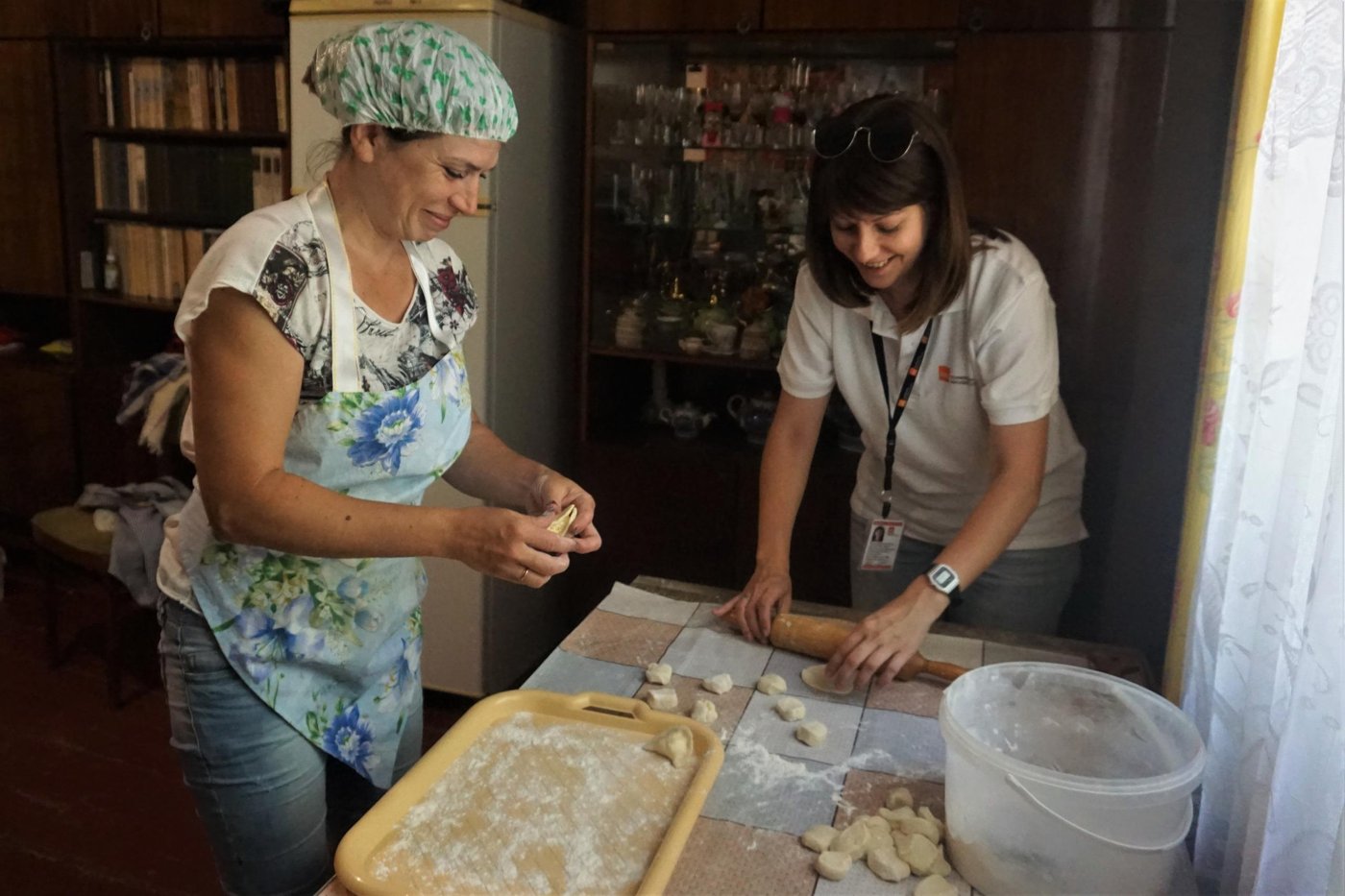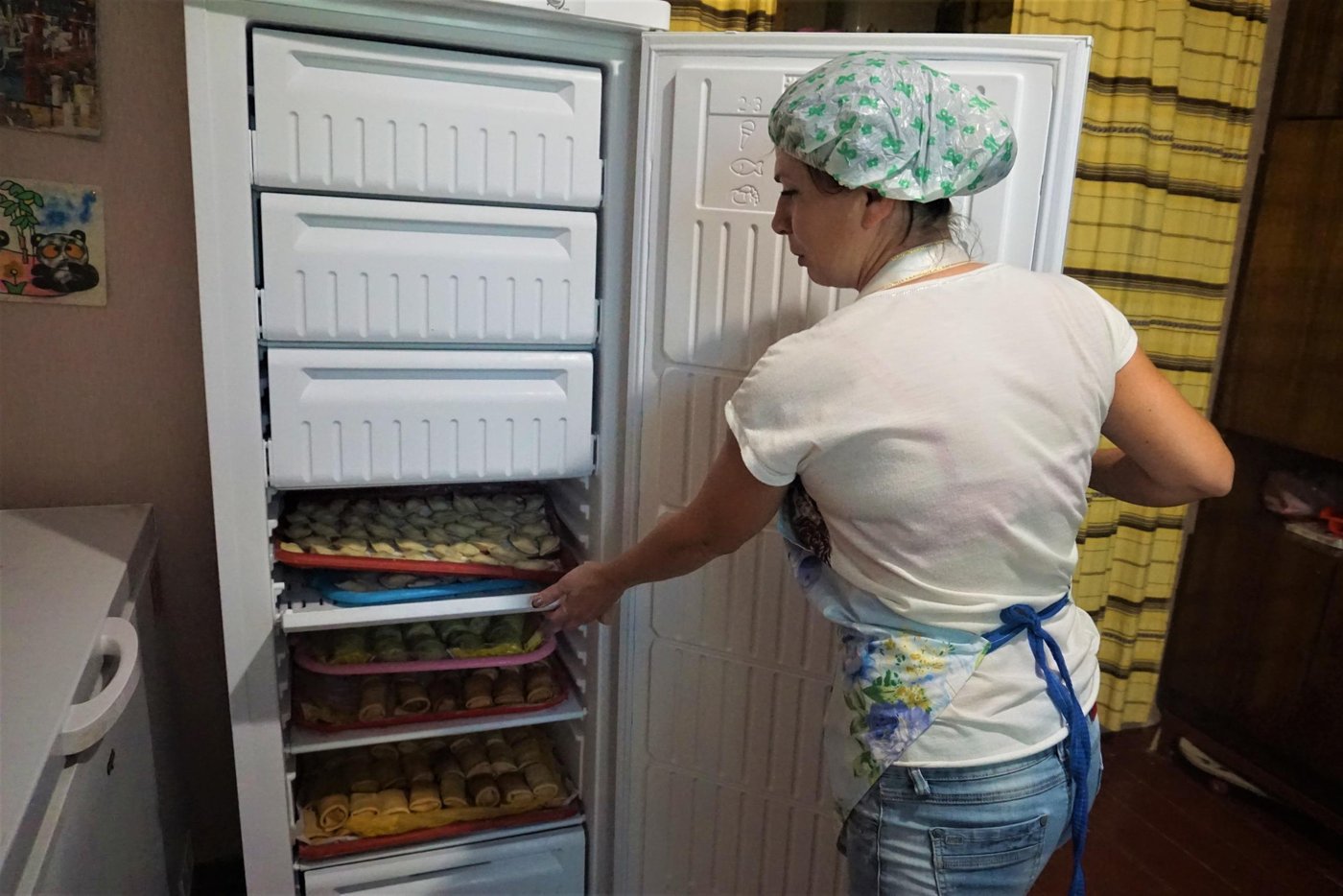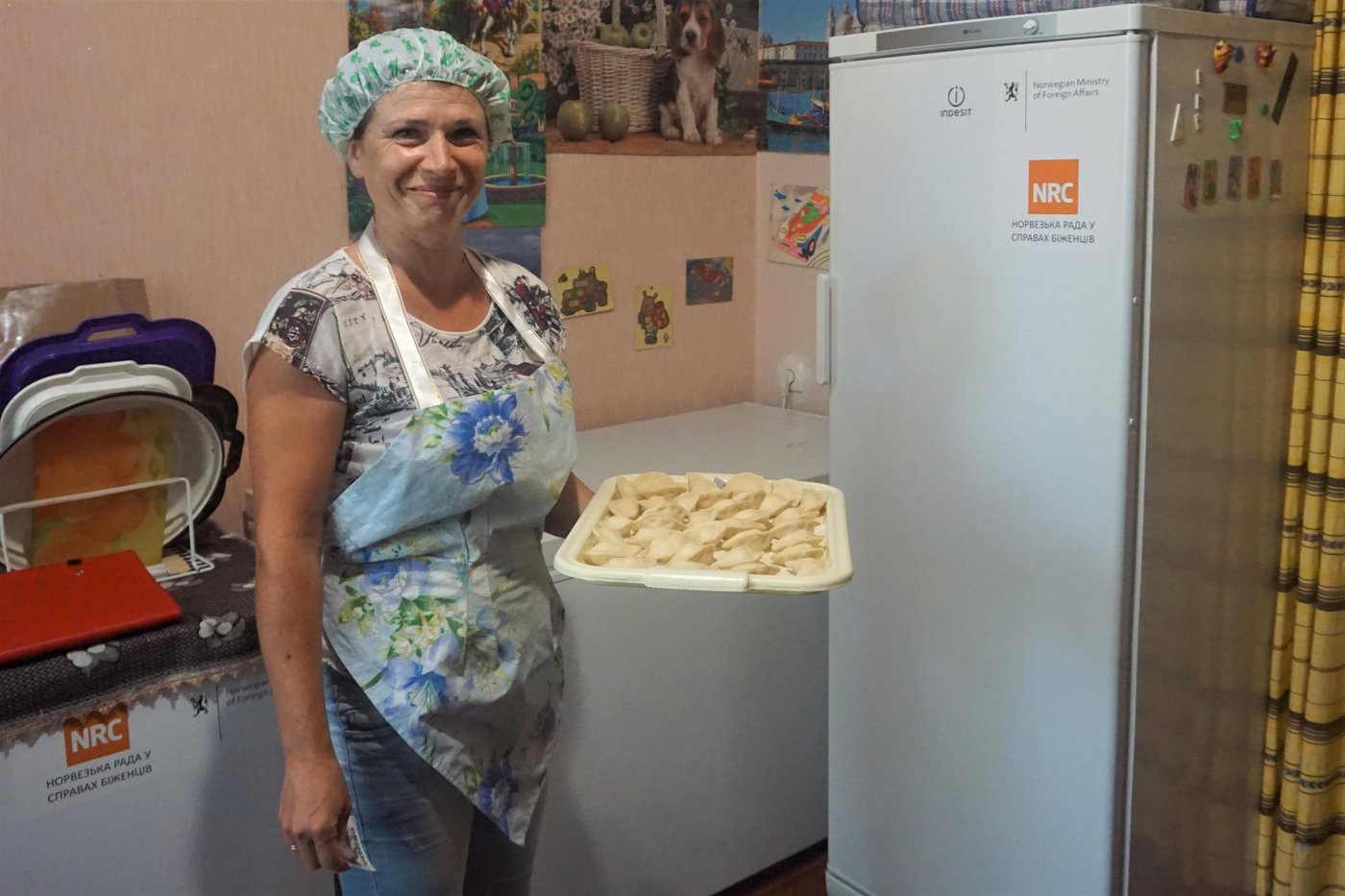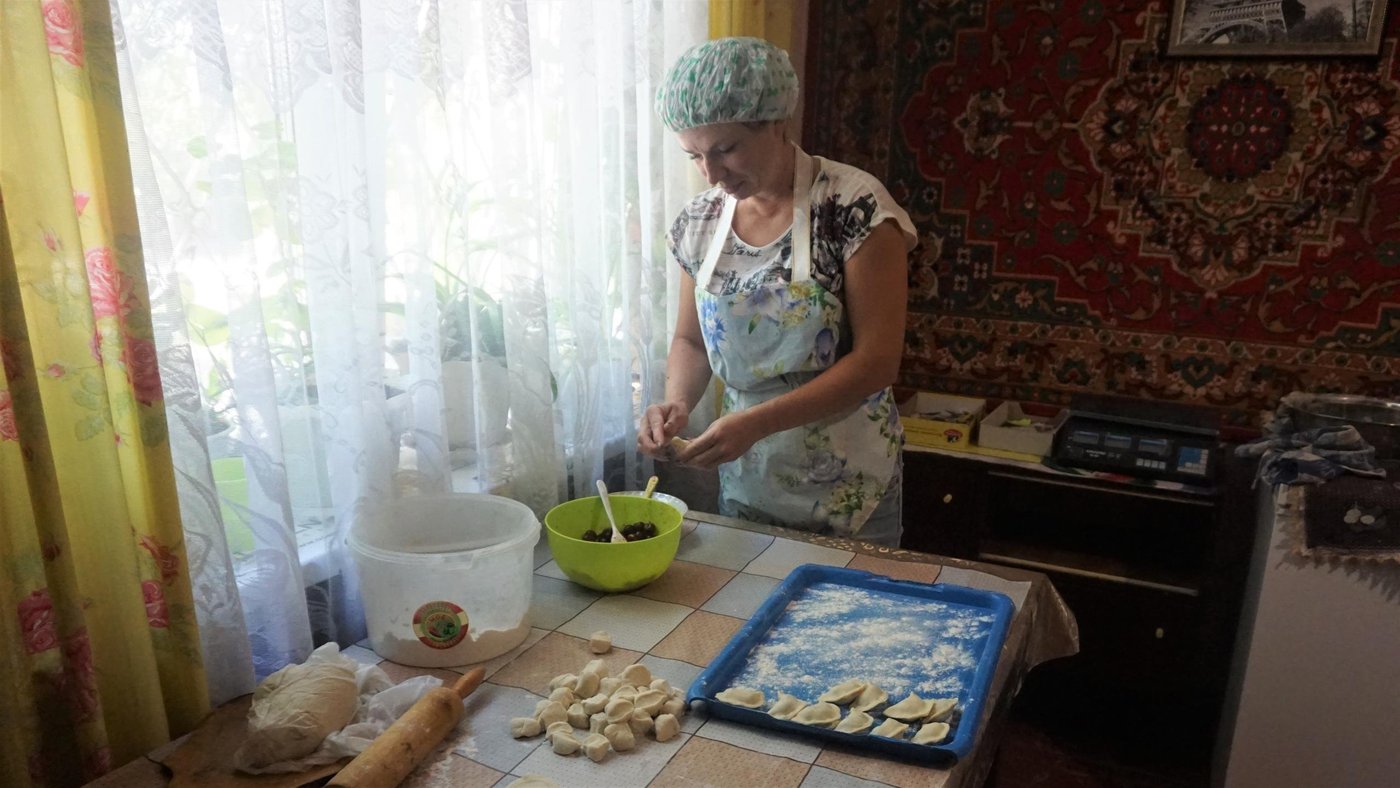The armed conflict in eastern Ukraine, which has been going on for over five years, has severely affected the lives of millions of people. Many businesses have lost their production capability or been shut down due to the separation of territories, constant hostilities and disrupted access to markets. This has led to high unemployment and a lack of income opportunities for the local population.
According to the OCHA Humanitarian Needs Overview 2019, the unemployment rate in the Donetsk region has doubled since 2013, while in the Luhansk region it has almost tripled. It is estimated that up to 406,000 unemployed working-age people, including those who have been displaced by the conflict, are still in need of livelihood assistance.
Losing what took years to build
Nina Moroz, 40, is one of many Ukrainians whose life has changed drastically since the conflict began. She lives in the once peaceful village of Myronivskyi in the Donetsk region of eastern Ukraine.
It was clear that the shop was completely destroyed. I felt hysteria and despair.Nina, 40, a store owner from eastern Ukraine
“I owned a children’s store in the centre of the village,” she explains. “It was our family business, and was quite successful. We could not imagine that we would soon lose what we had been building for years.”
When the hostilities reached her village, Nina closed the shop and fled under heavy shelling with her five-year-old son and husband. They went to a safer town nearby, where their daughter Iryna was living and studying. Every day the family lived in hope that the conflict would soon be over and they would be able to return home. However, the situation kept on deteriorating.
“At the end of January 2015, we got very sad news from my mother-in-law,” Nina recalls. “She said our shop had been hit. Initially I thought the damage was not substantial. But when I saw photos, it was clear that the shop was completely destroyed. I felt hysteria and despair. After a while, I came back to reality and realised that we had to get on with our lives.”
Dumplings with heart and soul
The family returned to their home village six months after fleeing, when the fighting had quietened down. Soon Nina got an offer from the village council to work as a social carer for elderly people. She took the job. “People were surprised that a former store owner would want to work as a carer. But I did not disdain to do any work,” Nina says.
She has tasty food because she puts her heart and soul into it.Tetiana Ivanivna, one of Nina’s regular customers
The job led to an unexpected business opportunity. Nina explains: “One of the women under my care asked me to make dumplings, as she’d heard I was good at it. She was my first customer. Then other people began ordering as well. Besides dumplings, we started making pancakes, cabbage rolls, meatballs, pizza. Sometimes even cakes.”

Tetiana Ivanivna, a regular customer, says: “Nina is my carer, and once I heard that she made dumplings, I asked her to make them for me. She brought some, and they were very tasty. I like to buy dumplings with various fillings. The price for her products is quite reasonable, and their quality is much better than you buy in the shop. She has tasty food because she puts her heart and soul into it.”
Food brings people together
Nina’s orders were increasing, but to keep up with the demand she needed more refrigerators.
“Last year my brother told me that the Norwegian Refugee Council was inviting applications for business grants,” she explains. “My daughter and I filled in an application together. To our surprise, we received a very quick reply from the organisation to say that we had been successful. Soon we received a grant and purchased a much-needed storage freezer and fast-freezing chamber. Our production doubled!”

Nina does not work alone. Her relatives and friends come to help her. “I have been helping Nina from the very beginning,” says her friend Alla. “It is difficult to push myself to make such food at home. But here is a different story, as it is work and here you can try tasty stuff. Our children love it as well, especially because the food is natural, not like in the shop.”
Nina has some customers among the elderly people under her care, and also sells her products to local residents. Twice a week, she and her mother take the bus to the nearby town to deliver their foodstuff in cooler bags to shops. Usually it takes two hours to get there, as the road has been damaged and is in very bad condition. Before the armed conflict the journey took just 25 minutes.

Nina still works part-time as a carer, taking food and medication to elderly and bed-ridden people, cooking for them and cleaning their accommodation. In the future, she would like to dedicate herself to her catering business full-time.
“I dream of arranging proper production facilities when the conflict is over, as we are currently working in my apartment. Also, I want to buy a delivery truck and expand our business to other districts and regions,” says Nina.


